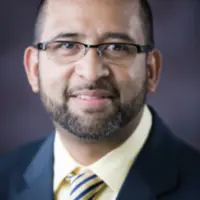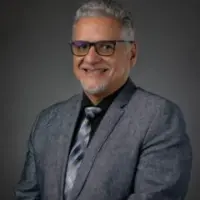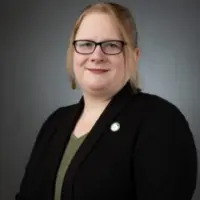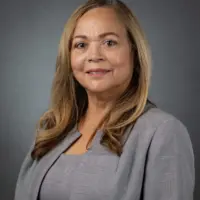About El Rincon Community Clinic – Closed
El Rincon Community Clinic in Chicago, Illinois provided a unique environment built to support you. Unfortunately this location has now closed but the organization has now become Rincon Family Services and they have facilities across Chicago with a wide range of services.
You could benefit from the compassionate outpatient substance abuse treatment program this facility offered that included a robust methadone maintenance option for opioid addiction. You could also access culturally responsive substance use dependency services tailored to the Hispanic community that were uniquely special to this clinic’s mission. We like that they prioritized methadone maintenance as a central part of their care.
What we valued most about them is their bilingual approach that ensures you feel welcomed in every conversation. All of their services were available with caring bilingual staff. The clinic accepted Medicaid and offered a sliding fee scale based on income. This way, you could focus on recovery without worrying about finances.
Outpatient Medication Assisted Treatment
At El Rincon Community Clinic, you could get outpatient substance abuse treatment right when you needed it. Their methadone maintenance program for opioid addiction was a great way to get help with cravings and withdrawal symptoms. You could expect clear medical monitoring and ongoing support during visits.
Addiction Treatment in Humboldt Park
We loved the location of this clinic. Once your appointment was done, you could head over to Humboldt Park Boathouse to paddle on the lagoon. You could visit the National Museum of Puerto Rican Arts and Culture right down Division Street. You could also have taken a stroll along Paseo Boricua’s colorful murals and popped into Café Colao for a Puerto Rican pastry. All of these are genuine, local stops that let you enjoy the neighborhood.
Latest Reviews
Rehab Score
Other Forms of Payment
Medicaid is a state based program that helps lower-income individuals and families pay for healthcare. Medicaid covers addiction treatment so those enrolled can use their coverage to pay for rehab. When a program accepts Medicaid the client often pays very little or nothing out of their own pocket.
Addiction Treatments
Levels of Care
Outpatient Programs (OP) are for those seeking mental rehab or drug rehab, but who also stay at home every night. The main difference between outpatient treatment (OP) and intensive outpatient treatment (IOP) lies in the amount of hours the patient spends at the facility. Most of the time an outpatient program is designed for someone who has completed an inpatient stay and is looking to continue their growth in recovery. Outpatient is not meant to be the starting point, it is commonly referred to as aftercare.
Drug and alcohol addiction often takes a heavy toll on one's body. Over time, a physical dependence can develop, meaning the body physiologically needs the substance to function. Detox is the process of removing drugs and/or alcohol from the body, a process that can be lethal if mismanaged. Medical detox is done by licensed medical professionals who monitor vital signs and keep you safe, healthy, and as comfortable as possible as you go through detox and withdrawal.
Treatments
The goal of treatment for alcoholism is abstinence. Those with poor social support, poor motivation, or psychiatric disorders tend to relapse within a few years of treatment. For these people, success is measured by longer periods of abstinence, reduced use of alcohol, better health, and improved social functioning. Recovery and Maintenance are usually based on 12 step programs and AA meetings.
Drug rehab in Illinois is designed to help people recover from addiction to a number of substances. The length of each program and its intensity tend to vary, and the plan of care is based on your individual needs.
A combined mental health and substance abuse rehab has the staff and resources available to handle individuals with both mental health and substance abuse issues. It can be challenging to determine where a specific symptom stems from (a mental health issue or an issue related to substance abuse), so mental health and substance abuse professionals are helpful in detangling symptoms and keeping treatment on track.
Opioid rehabs specialize in supporting those recovering from opioid addiction. They treat those suffering from addiction to illegal opioids like heroin, as well as prescription drugs like oxycodone. These centers typically combine both physical as well as mental and emotional support to help stop addiction. Physical support often includes medical detox and subsequent medical support (including medication), and mental support includes in-depth therapy to address the underlying causes of addiction.
Programs
Adult rehab programs include therapies tailored to each client's specific needs, goals, and recovery progress. They are tailored to the specific challenges adult clients may face, including family and work pressures and commitments. From inpatient and residential treatment to various levels of outpatient services, there are many options available. Some facilities also help adults work through co-occurring conditions, like anxiety, that can accompany addiction.
Young adulthood can be an exciting, yet difficult, time of transition. Individuals in their late teens to mid-20s face unique stressors related to school, jobs, families, and social circles, which can lead to a rise in substance use. Rehab centers with dedicated young adult programs will include activities and amenities that cater to this age group, with an emphasis on specialized counseling, peer socialization, and ongoing aftercare.
Clinical Services
Group therapy is any therapeutic work that happens in a group (not one-on-one). There are a number of different group therapy modalities, including support groups, experiential therapy, psycho-education, and more. Group therapy involves treatment as well as processing interaction between group members.
In individual therapy, a patient meets one-on-one with a trained psychologist or counselor. Therapy is a pivotal part of effective substance abuse treatment, as it often covers root causes of addiction, including challenges faced by the patient in their social, family, and work/school life.
Staff

Eddy F. Borrayo, MSW, CADC, CODP II
President & CEO

Pedro Perez, MBA
CFO

Beth Dlouhy, LCSW, MSW, MA
Corporate Compliance Officer & Adult Mental Health First Aid Instructor

Rosemary Lebron
Chief Human Resource Officer